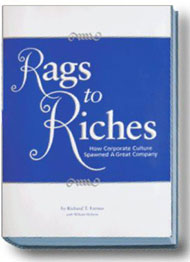OLD SAN JUAN, January 6, 2009—I came here for a break in the sun but, as often has been the case, I stumbled into a story. Better to be lucky than smart.
A new governor, Luis Fortuno, has been elected and he was inaugurated during my stay. One of the planks of his candidacy was statehood for Puerto Rico, instead of leaving it as a mere territory of the United States.
It’s an interesting proposition. You land on this island of 4 million and do not need a passport to enter. They use U.S. dollars. The National Park Service maintains the old Spanish forts like Morro, which is quite a sight to behold, and the National Forest Service maintains the Yunque rain forest. The Coast Guard has a base and provides security for Puerto Rico. The locals have access to Medicare. And English is widely spoken, at least by everyone I met who had a connection to the tourism industry.
So on some levels, the United States has already adopted Puerto Rico. Its citizens flock to New York to earn higher levels of income than they can at home; I was told that it was mostly younger Puerto Ricans who go to New York. I’d estimate that there must be about 1 million in the New York area. Then when they get older, they return to Puerto Rico to enjoy the sun and easy-going lifestyle.
American control has clearly benefitted the local economy in many ways. Because of a tax break, large pharmaceutical companies have set up shop on Puerto Rico. Eli Lilly has a huge factory complex in Carolina, the city just east of San Juan. This manufacturing activity is the second largest industry, after tourism. Agriculture is third. The Puerto Ricans do not appear to have created large scale enterprises to compete against the usual suspects from the U.S.—Wal-Mart and K-Mart are here, as are McDonald’s, KFC, Starbucks and all the fast-food outlets. A wide variety of American, Japanese and European cars are visible, but none of them are assembled on the island. The government’s role looms large in the economy—it directly employs 30 percent of the population and another 30 percent of the population benefits from government contracts.
About half the people of Puerto Rico don’t really want to become part of the United States because they fear that would challenge their local Spanish-speaking culture and their local lifestyle, including such things as traffic laws and how late the bars are open. These folks seem to reckon that Puerto Rico has got a pretty sweet deal right now—its economy is reasonably strong despite current economic jiters and they have access to the offerings of American companies, yet they maintain their local culture. They pay taxes only to Puerto Rico, not to the United States. And they have representatives in Congress who can observe, but not vote. They cannot vote for the U.S. president.
I talked about the Puerto Ricans with a Venezuelan shop keeper, where I did enough buying to lubricate her sensibilities. She felt that the Puerto Ricans don’t work as hard as Venezuelans or Colombians. “They don’t work,” she said. “They live off of checks from the U.S. government. They want to keep all their holidays as well as all the holidays of the Americans.”
I saw this last bit in action. The Puerto Ricans celebrate Christmas on Dec. 25, with Santa Claus making his gift-giving deliveries. But then the holidays continue until Jan. 6, which is the Three Kings celebration. There are the three Magi who visited the Christ child, bearing gifts from the East. The town remains essentially shut down. “If you want to find a doctor or a lawyer right now, you can forget it,” said the shop-owner.
I understand from a security point of view why the United States might want to deepen its control over Puerto Rico. If you look at a map, Cuba isn’t that far away. Haiti and the Dominican Republic are right next door. Toward the south is Hugo Chavez and his aspirations for la revolucione. The U.S. Army, for one, is clearly in favor of statehood. When I walked over to where the governor was being inaugurated, a friendly National Guardsman explained that the Army was preparing to fire a 19-gun salute for the new governor, rather than 17, because of his position on statehood.
But in the absence of any real reporting, I was left with the impression that the U.S. ought to be careful of encouraging Puerto Rican statehood, particularly if it would involve more extensive social payments from Washington. The American ability to pay for its own bills, such as a large stimulus package, is very much in doubt. Ultimately, the Chinese and Japanese may not keep buying U.S. Treasuries. If I felt that fully absorbing Puerto Rico would unleash major innovation or productivity gains in the American economy, and would reflect a net contribution to digging out of our fiscal hole, I’d be all for it. But that’s not the conclusion I draw. It might be best—for everyone–to leave Puerto Rico just the way it is.




